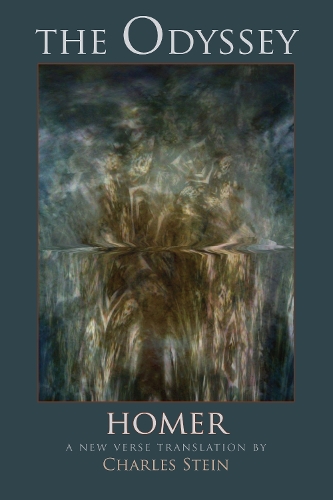
The Odyssey
(Paperback)
Available Formats
Paperback
Published: 15th August 2016
Paperback
Published: 15th July 2011
Paperback
Published: 22nd May 2014
Hardback
Published: 5th January 2022
Paperback, Enriched Classic
Published: 1st September 2005
Paperback
Published: 15th September 2011
Paperback
Published: 9th December 2014
Paperback
Published: 27th November 1997
Hardback
Published: 8th September 2016
Hardback
Published: 29th April 2010
Paperback
Published: 1st October 2007
Paperback
Published: 18th May 2011
Hardback
Published: 2nd December 1992
Hardback
Published: 22nd July 2025
Paperback
Published: 1st September 2016
Paperback
Published: 5th May 1992
Hardback
Published: 12th August 2025
Publishing Details
The Odyssey
By (Author) Homer
Translated by Charles Stein
North Atlantic Books,U.S.
North Atlantic Books,U.S.
15th July 2011
United States
Classifications
General
Non Fiction
Ancient, classical and medieval texts
883.01
Physical Properties
Paperback
656
Width 152mm, Height 229mm, Spine 34mm
885g
Description
The Homeric text that we have is written in what became the standard verse form for high-serious composition in the classical world. Yet certain recent scholars have speculated that the oral composition of the poem in its early form may have been written with a phrase-by-phrase prosody, not the formal line that culminated the tradition. The prosody borrowed from the Black Mountain poets harken back to this possibility, and thus allow the translator to find unexpected links to the earliest strata of Homeric verse. The famous episodes - the sirens, Scylla and Charibdys, the Cyclops - are translated with great energy and sympathy, making the 'action' aspects of the poem palpably accessible and engaging.The second half of the poem - where Odysseus, having returned to his native land, prepares to take revenge on the wooers of his wife - is shown to have extraordinarily subtle, 'novelistic' features, which are made transparent in this translation. There is also a special feel for the 'archaic' dimensions of Homer - the world of gods and their complex relations to Fate and Being that other translators tend to de-emphasize in order to make the poem feel 'modern'. It is often claimed that the Homeric world excludes or minimizes the 'magical' and is for this reason fit to be the first great work of the modern world. The translator takes the opposite approach: the spirit of a universe prior to the classical shines through everywhere. Stein feels we read Homer not only to learn what the Greeks thought about the gods - but to learn about the gods themselves!
Author Bio
Charles Stein has been a lifelong practitioner of poetry composition under the tutelage of the Black Mountain Poets. He knew Olson, Dorn, and Duncan personally and is considered a late-generation participant in the tradition that they inaugurated. Stein is uniquely intimate with the spiritual flavor, the dramatic action, and the theological and mythological dimensions of the Homeric world. He began the study of Homeric poetry in Greek as an undergraduate, and has published his translation of the "Homeric Hymn to Demeter" in his North Atlantic book, Persephone Unveiled.
